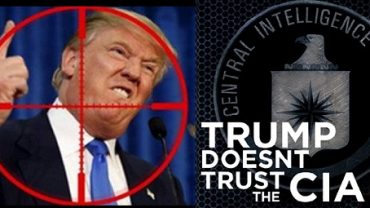Reagan Sought Fair Trade but wasn’t shy about intervening for U.S. industries
Even people on polar opposite sides of the trade debate can agree on one point: Ronald Reagan was no free trade purist.
Reagan’s name sometimes is invoked by proponents of international trade agreements who cite some of the 40th president’s free trade rhetoric. Sen. Ted Cruz, in explaining his last-minute decision last year to change his position and vote against giving President Obama a free hand in negotiating a Pacific Rim trade deal, took pains to burnish his free trade bona fides.
After Reagan’s death in 2004, an official from the libertarian Cato Institute wrote that “Reagan’s heart and head were clearly on the side of free trade.”
Dan Griswold, who was then the associate director of the Washington think tank, added: “Compare Reagan’s hopeful, expansive, and inclusive view of America with the dour, crabbed, and exclusive view that characterizes certain conservatives who would claim his mantle. Their view of the world could not be more alien to the spirit of Ronald Reagan.”
Cato had a different view of Reagan at the time, however. It published a stinging critique in 1988 by freelance writer Sheldon Richman, who pointed disparagingly to a number of instances in which Reagan intervened on behalf of American industries.
“Ronald Reagan’s reputation surpassed the reality,” Richman said in an interview. “He was terrible. He used to brag that he was a free trader … It is amazing how romanticized Ronald Reagan has become among conservatives.”
William Niskanen, who served on Reagan’s Council of Economic Advisers and later became chairman of Cato, wrote at the time that Reagan “imposed more new restraints on trade than any administration since [Herbert] Hoover.”
Kevin Kearns, president of the United States Business and Industry Council, said he believes advocates of international trade deals willfully distort Reagan’s record. He said Reagan retaliated a number of times against cheaters.
“It was a consistent theme of his eight years,” he said. “He understood there were certain industries that America needed to remain an economic and military power.”
Reagan often spoke in soaring terms about free trade, and in 1979 proposed a trade pact linking America with Canada and Mexico. But his actual record was more complicated.
“He was basically a free trader, but he also railed against the unfair trade protectionism of Japan when it came to the auto industry,” said Craig Shirley, a Reagan biographer. “I think he would generally be for free trade [if he were president today] but not for stupid trade.”
While he vetoed a bill in 1985 to impose tariffs on imported textile goods, that same year he also pressured Japanese automakers to accept “voluntary” quotas to reduce the number of cars exported to the United States.
Richman said Reagan used the prospect of tougher sanctions by Congress to browbeat the Japanese.
“The Japanese didn’t want to do it, but Reagan did it in a particularly sneaky way,” he said.
The Reagan administration also negotiated the Plaza Accord, a 1985 agreement with France, West Germany, Japan and Britain to devalue the dollar. Kearns said it was a response to currency manipulation by trade competitors that was making U.S. exports prohibitively expensive.
Shirley said Reagan preferred trade with America’s closest geographic neighbors to pursing agreements with far-flung corners of the globe. And Reagan used trade as a carrot and stick — as a means to an end rather an end in itself, he said. He pointed to the Caribbean Basin Initiative, which provided tariff and trade benefits to Central American and Caribbean countries. He said Reagan wanted to strengthen the economies and defenses of America’s regional allies during the Cold War.
“Everything in Reagan’s presidency … has to be judged through the prism of the shadow of the Cold War,” Shirley said.
